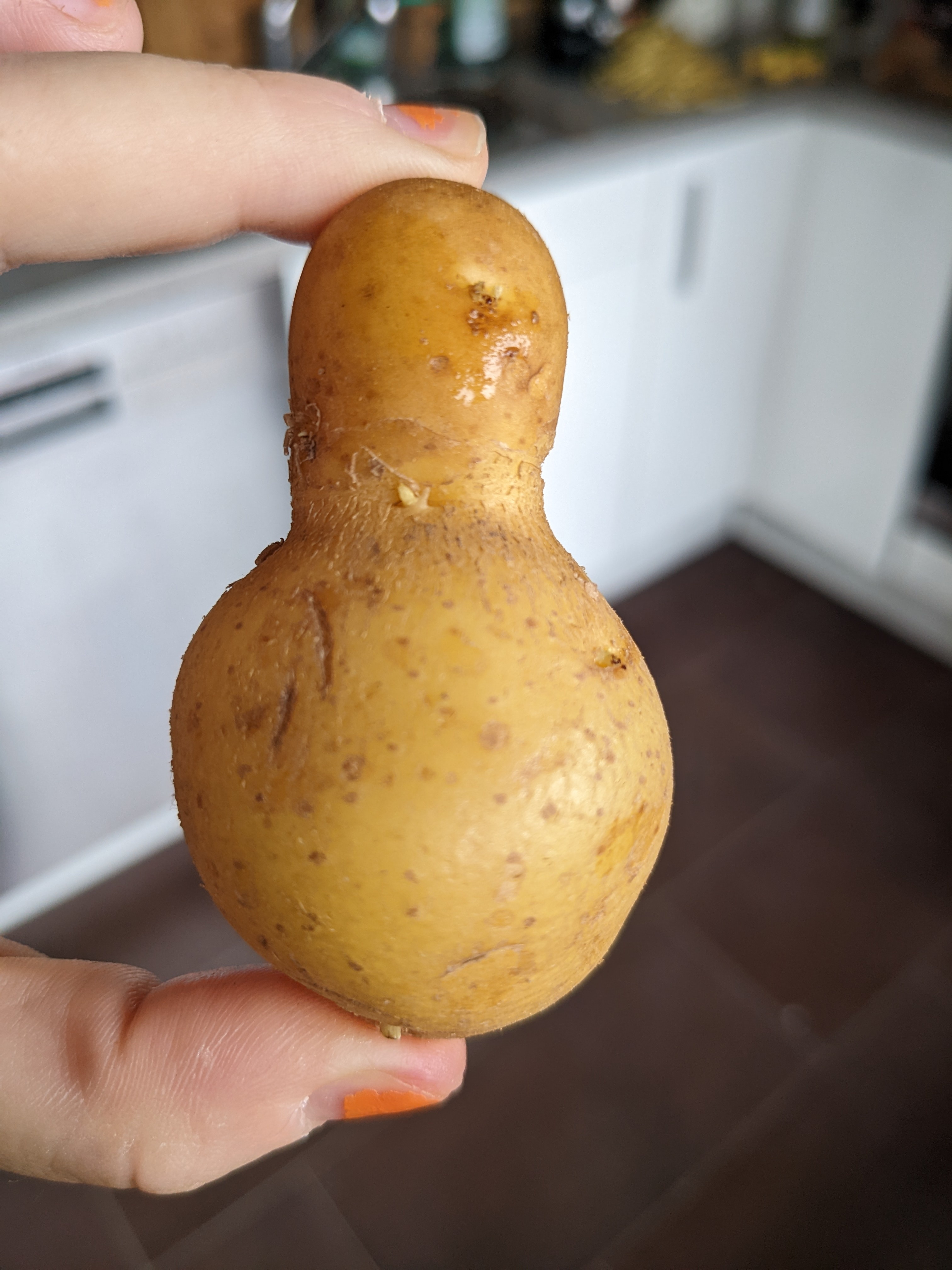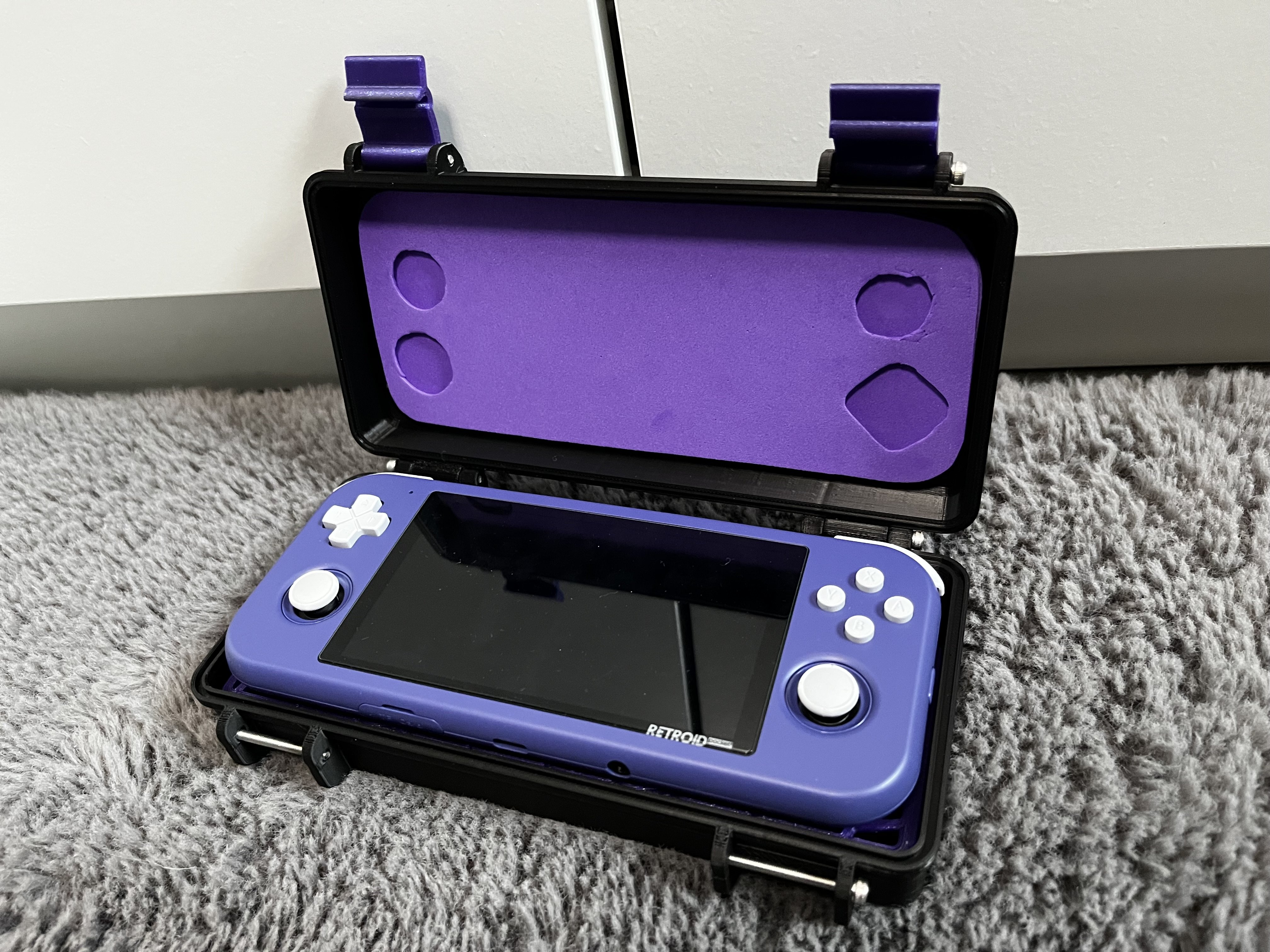Turned on retraction speed to 11 and i guess it wore down the filament at one part but then managed to push it after some 10 minutes of spaghetti 👌
Thats pretty amazing tbh. You could call that art imo. Like in some philosophical “Building yourself back up after failure” type of way
I agree. Spruce it up and it’ll be art.
Maybe i should make a printable model but preserve the “original” “art” “design” 🧐
I see it more like a person who says “I’m fine” but it’s a mess inside.
I think your vision fits for average person WHO doesn’t know how 3d printing works, and that previous one fits someone who understands 3d printing
How is that even possible that’s awesome.
Cooling fan cooled the spaghetti, and when enough got formed, outer perimeters started building the Z support. After some time, the infill actually caught to the flying spaghetti and created a “solid” bottom layer upon other layers managed to stick. Due to the flexible nature of spaghetti structure, the printed part was wobbling quite much and couldn’t retain the dimensional accuracy 😕
That is a work of art.
Definitely belongs on the wall of “this should be shame but I’m really quite proud”
We all have that shelf, right?
I used to have it but then i just had to throw everything away. Something something why is this junk in our house something something angry wife…
Put it next to your live laugh love poster
My sister has that directly on the walls.
I had no idea this was a thing despite also having it directly on my walls.
When I read your statement, I was like wait… I think that is what my wall says and had to go check.
The lady that lived here before me put that and some other weird word art on the walls. Been meaning to get around to peeling it off and repainting, but keep finding other priorities.
Boi-oi-oing!
Here is an alternative Piped link(s): https://piped.video/hoS1MCF8AeI?si=cP9DUvUIIe6KMJ0V
Piped is a privacy-respecting open-source alternative frontend to YouTube.
I’m open-source, check me out at GitHub.
I was just at an art exhibit last week, and I’m confident you should put this in an exhibit. It perfectly represents the stages of a website or software project.
Removed by mod
We should make a whole keyboard out of this!
MechanicalKeyboards folks are LIVID right now.
Removed by mod
Summoning chutullu with your 3D printer 101~ A must read for all makerspace enthusiasts
Anyone aware if that be re-melted or recycled back into filament, or is it pretty much done for?
If I had a 3D printer this would be nightmare fuel after waiting X hours for the print to complete lol
In theory, you can remelt. Unfortunately, the practicalities mean it’s not viable. Each remelt cycle degrades the plastic itself, so you can only put 20% or so ‘old’ plastic into the mix. Combined with the game of plasticisers (to remove brittleness) and reliable forming, even commercial systems struggle, let alone home ones.
If environmental concerns are the issue. It’s best to print in uncoloured PLA filament. PLA is corn starch based, and decomposes in a bio reactor environment (it rots quickly in an industrial composter).
As for speed. They are getting impressively fast. A calibration cube takes around 20 minutes, though less than 5 minutes is possible. My machine is effectively fire and forget. They mess around while you are tuning them in, but once you have a good calibration, they now tend to hold it well. You’ll sit there watching it in fascination for the first few months, but that wears off.
You kinda get used to them failing.
Part of the reason my printer just sits there not being used, aside from I collect hobbies for fun, is that it’s a nightmare levelling the bed and getting things dialled in.
Resin printers don’t have these issues but it depends what you’re printing I guess.
Get an automatic bed leveler.
My printer just sits there, covered. When I want something, I uncover it, clean the printing surface with some alcohol, and tell it to print.
By the way, resin printers have a completely different set of issues. But yeah, they don’t have those ones.
I have a BLTouch. Perhaps I need to assess how sturdy it’s table is that it lives on.
I have one of those servo sensors that use a microswitch at the end.
The printer has a sturdy frame build from extruded aluminum. That probably makes a lot of difference. I can take the printer, move it into some other surface, turn it on and print, without leveling issues. Before it I had a wooden one without autoleveling. That one needed leveling before each print.
resin printers have the slight issue of being a chemical hazard and requiring PPE.
With resin when a print fails, you just get a half print stuck to the bottom of the resin tank, no spaghetti. The most common cause of failure is the part falling of the lifting platform, typical due to poor supports, but rarelybecause the platform is crooked.
Leveling is pretty easy on most printers, just loosen the bed, remove the resin tank, placing some thin cardboard in it’s place, lower the platform until it touches the cardboard, and lock it in place.
Getting an auto leveler was a game changer for me. I still manually level the bed and check the Z offset every two months or so along with other maintenence, but I’ve gone on week long printing sprees without touching the bed springs once.
I have a BLTouch but still have issues. I do feel maybe a sturdy table is needed.
A few tips that made my prints much better:
- Check if your rollers are tight enough. None of the axes should wobble if you pull on them
- Use a PEI sheet for printing
- Clean the PEI Sheet with Soap and Water at least once
- Clean with IPA after every print
- Don’t touch the print bed. The oil on your skin really doesn’t help with sticking.
- Get yourself a metal feeler gauge with 0.2mm. Level your bed heat nozzel and bed to your normal print temp an then move the nozzel 0.2 mm above the bed. Adjust your Z Offset until you can get the metal gauge undr the nozzle but still feel it touching. that should be your perfect height
- If you still have problems try all the steps here one after another: https://teachingtechyt.github.io/calibration.html
I used to have a lot of problems with parts lifting up or my prints being unclean but since I did this my prints look great and stick to the bed.
Thanks for these tips. The next time I’m motivated to print something I’ll definitely take this on board.
You get used to that being a possibility with every print. That’s why you should do everything in your power to have your printer always in shape and operational, although sometimes it will happen no matter what!
Unfortuneatly, this is just waste, straight to the bin.
Is it still a 20mm cube?
This was max acceleration / max speed test, it’s a 30mm cube (scaled)
Not really a cube, that’s certain.
But unless it’s losing steps, the printer just can’t make that top layer in any other height.
Clearly your Printer is not an Elon Musk fan.
I don’t get it 😔 Care to enlighten me?
You tried to get it to print an X and it noped out.
Aahh okay! That’s actually funny now when i think about it a bit!
I’m guessing cause it stopped printing the “X”
X? No, Ctrl+Z
Ahhh I see… the good old spaghetti infill exposing









